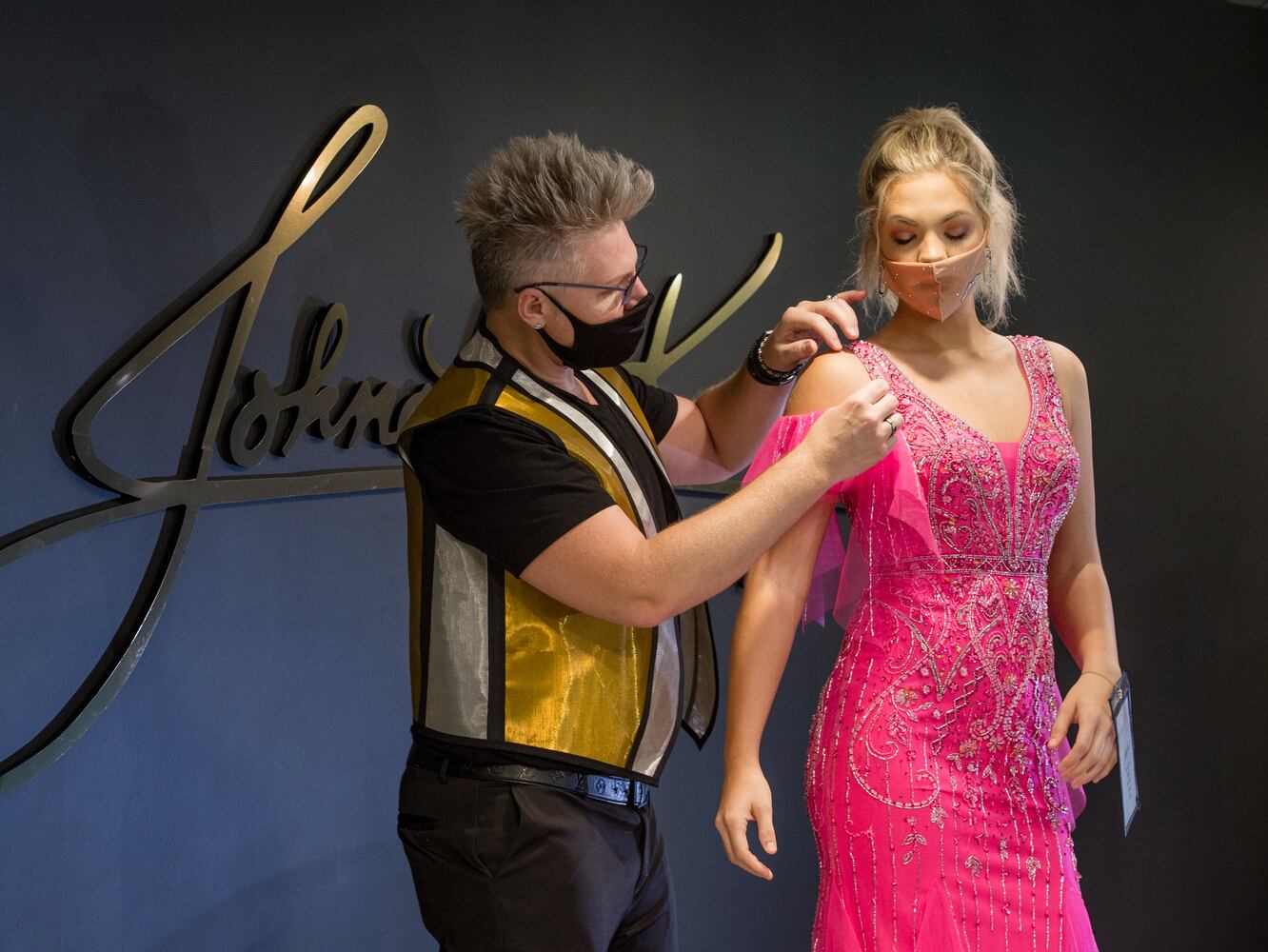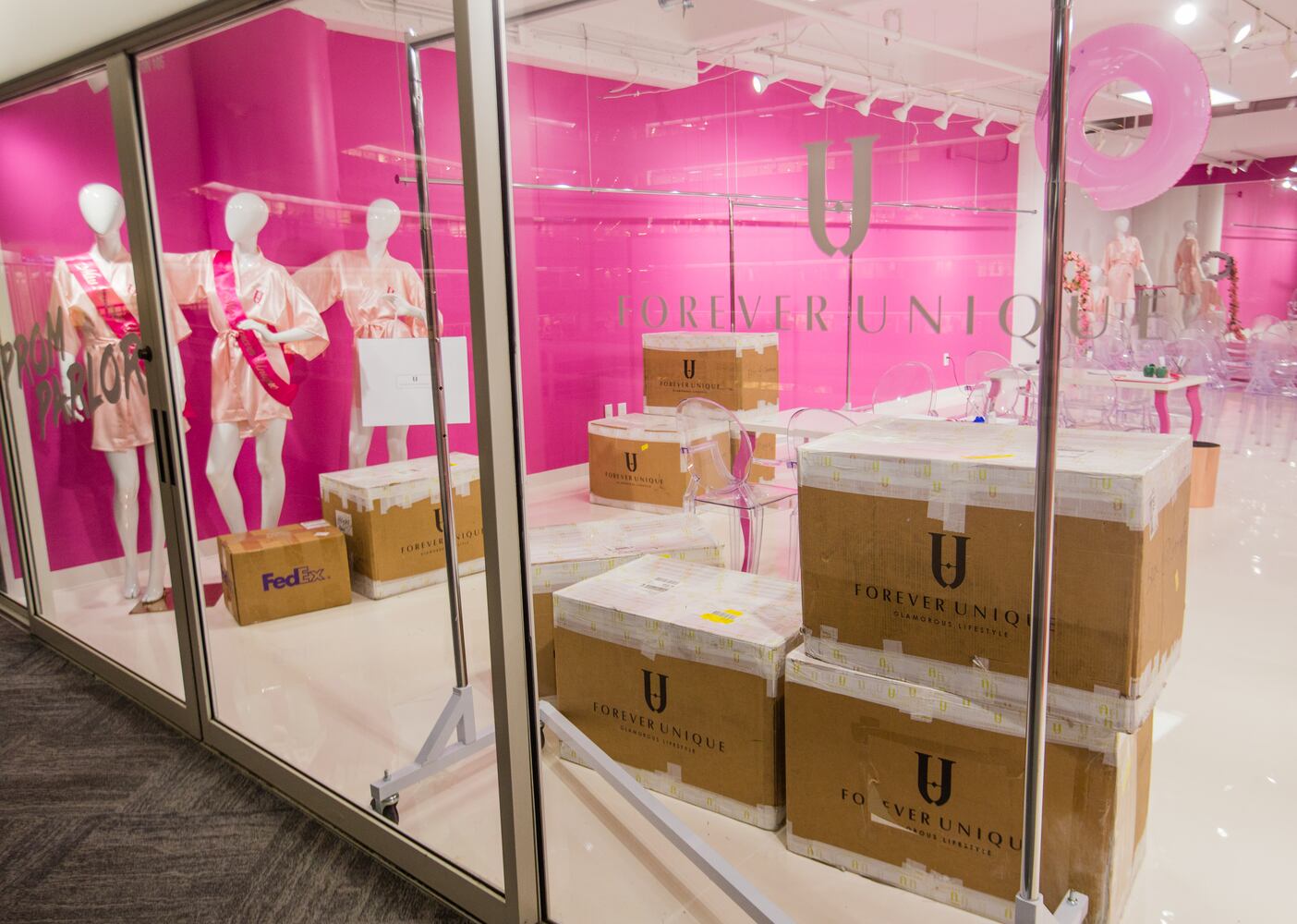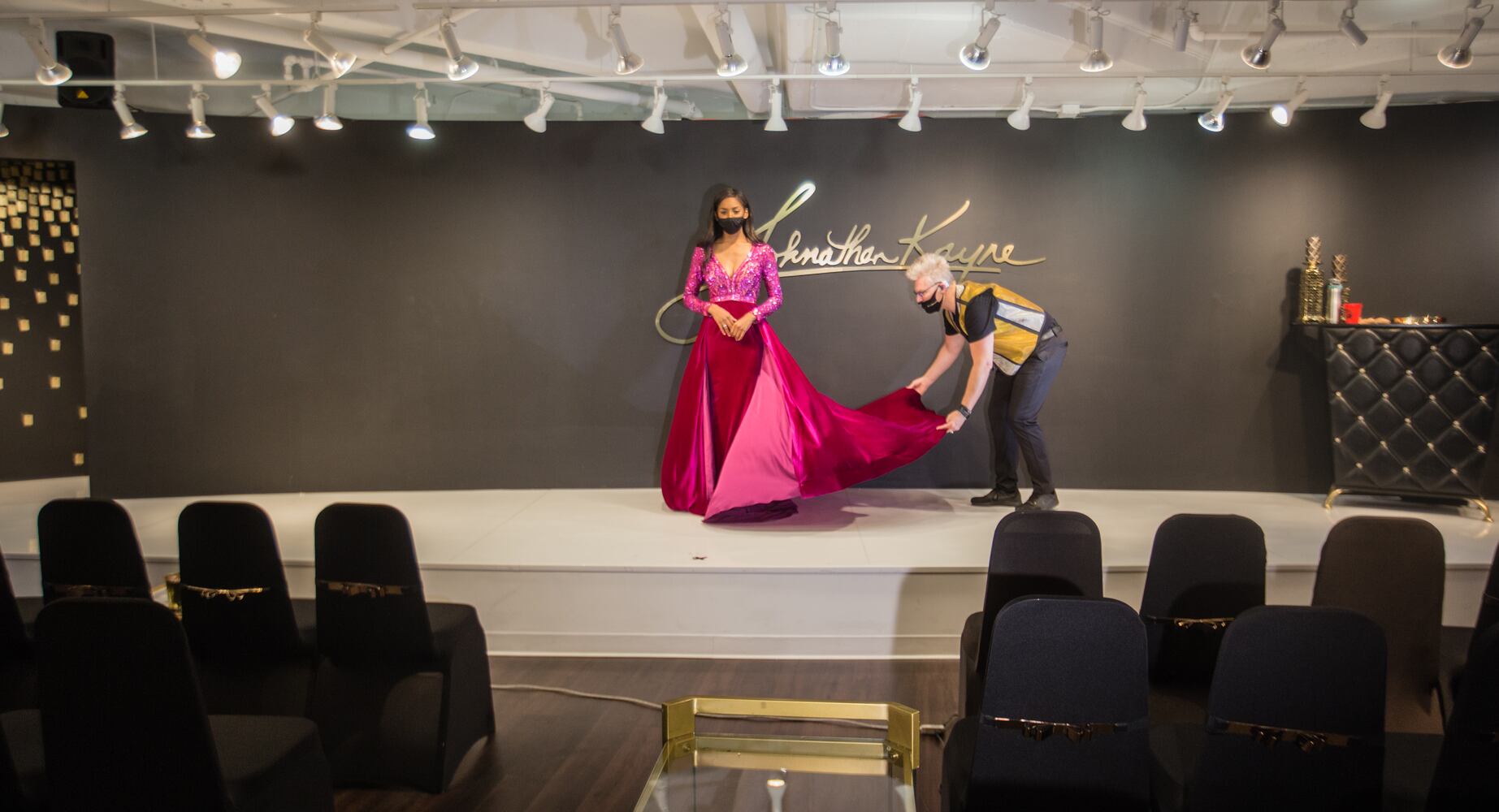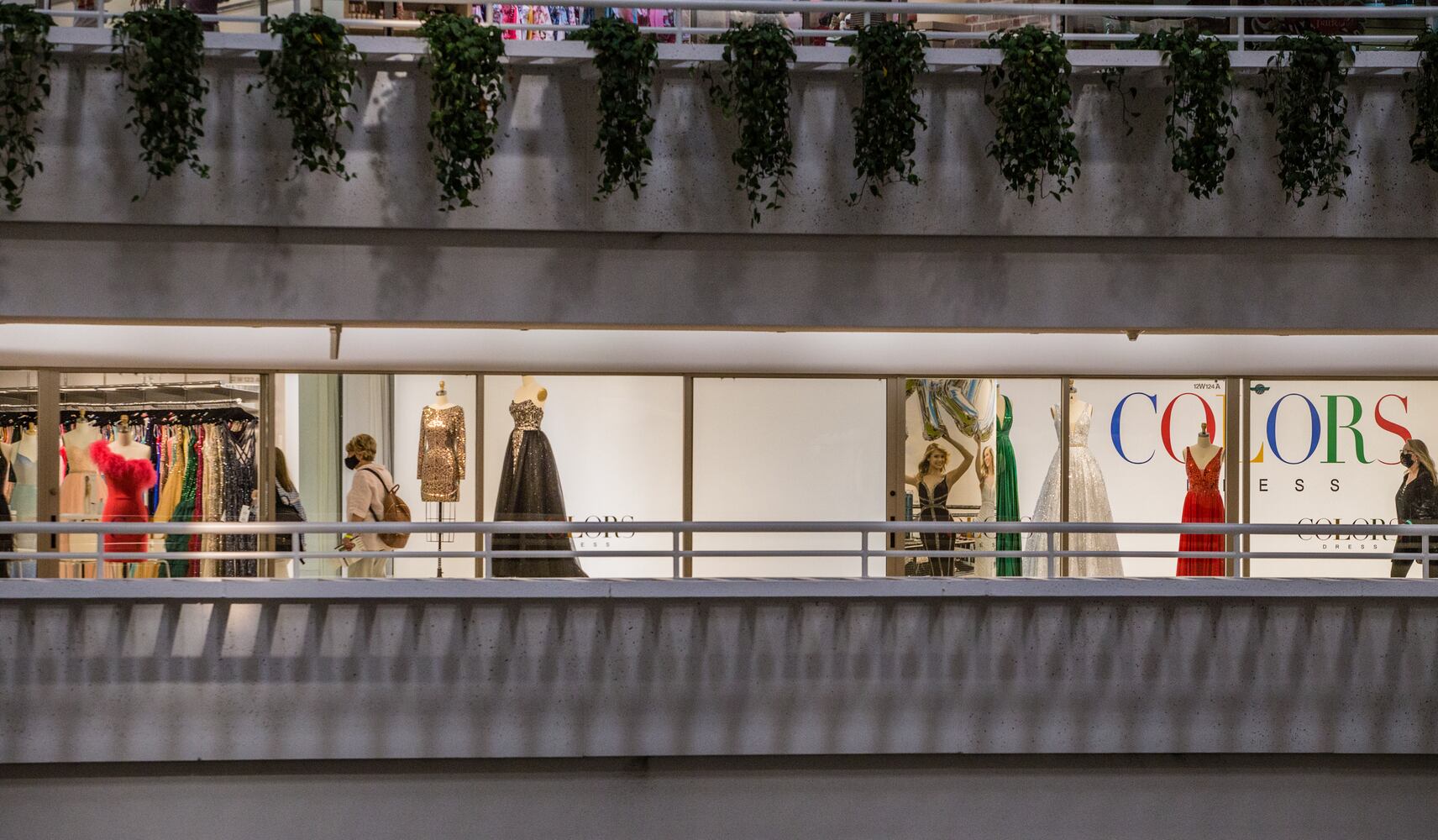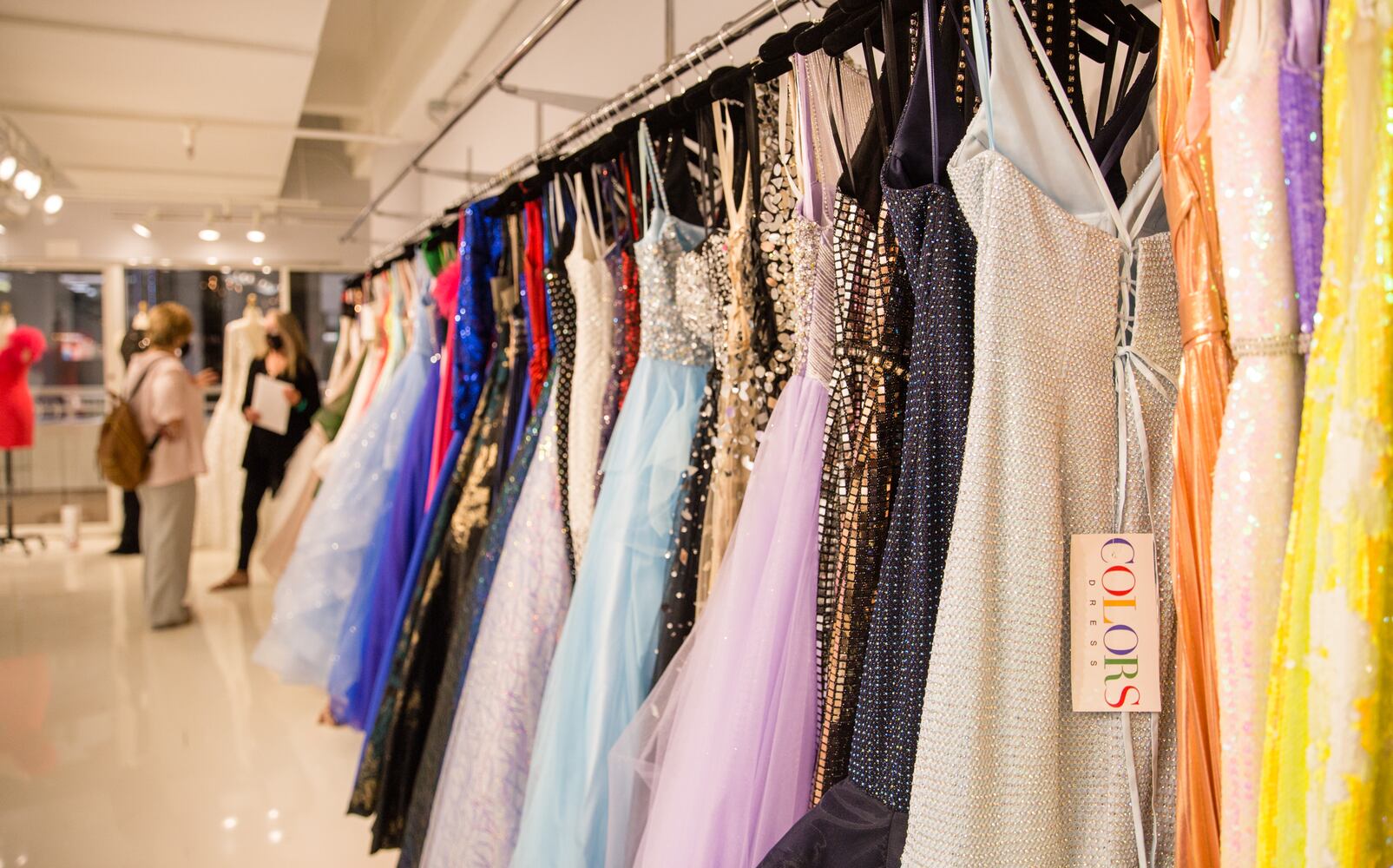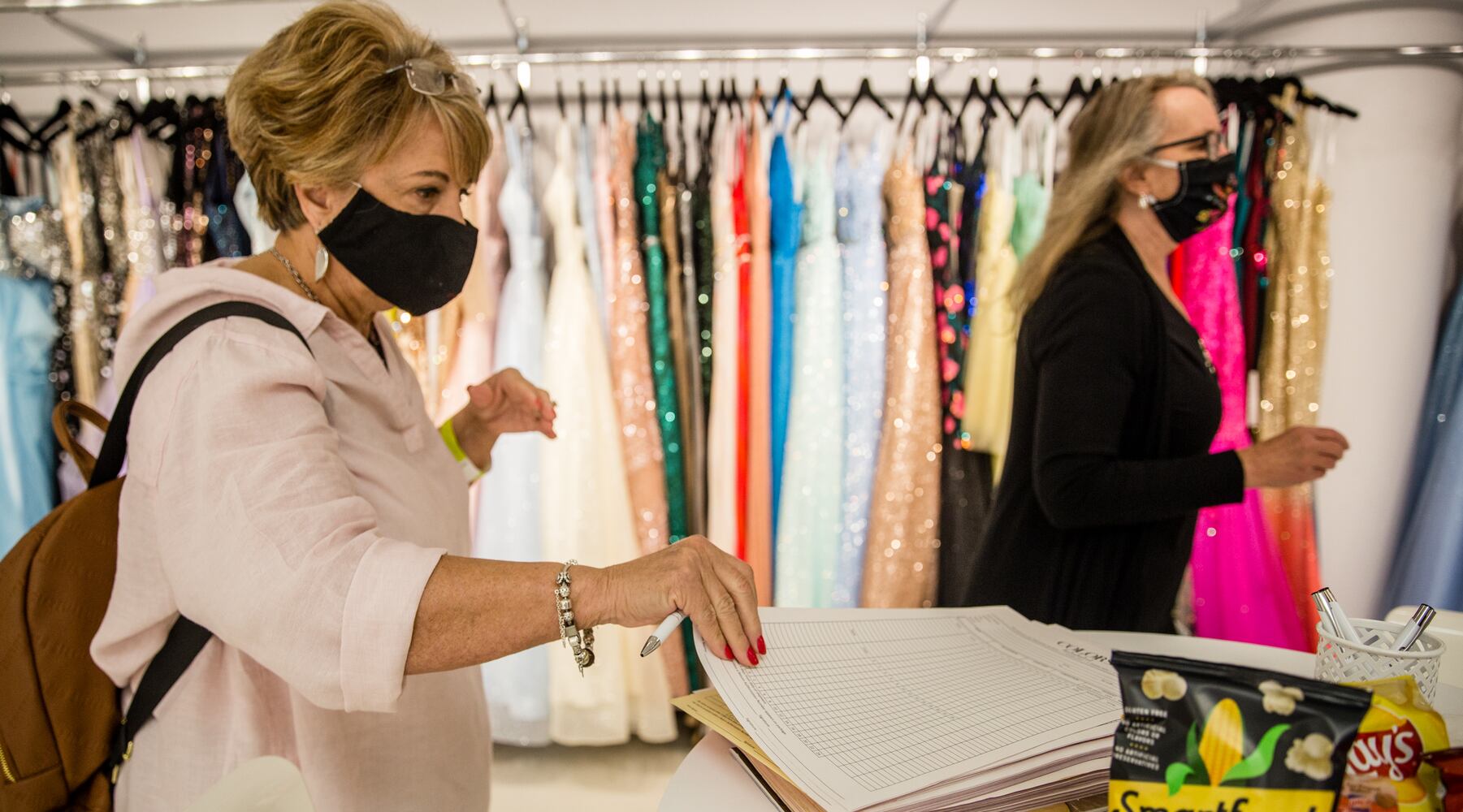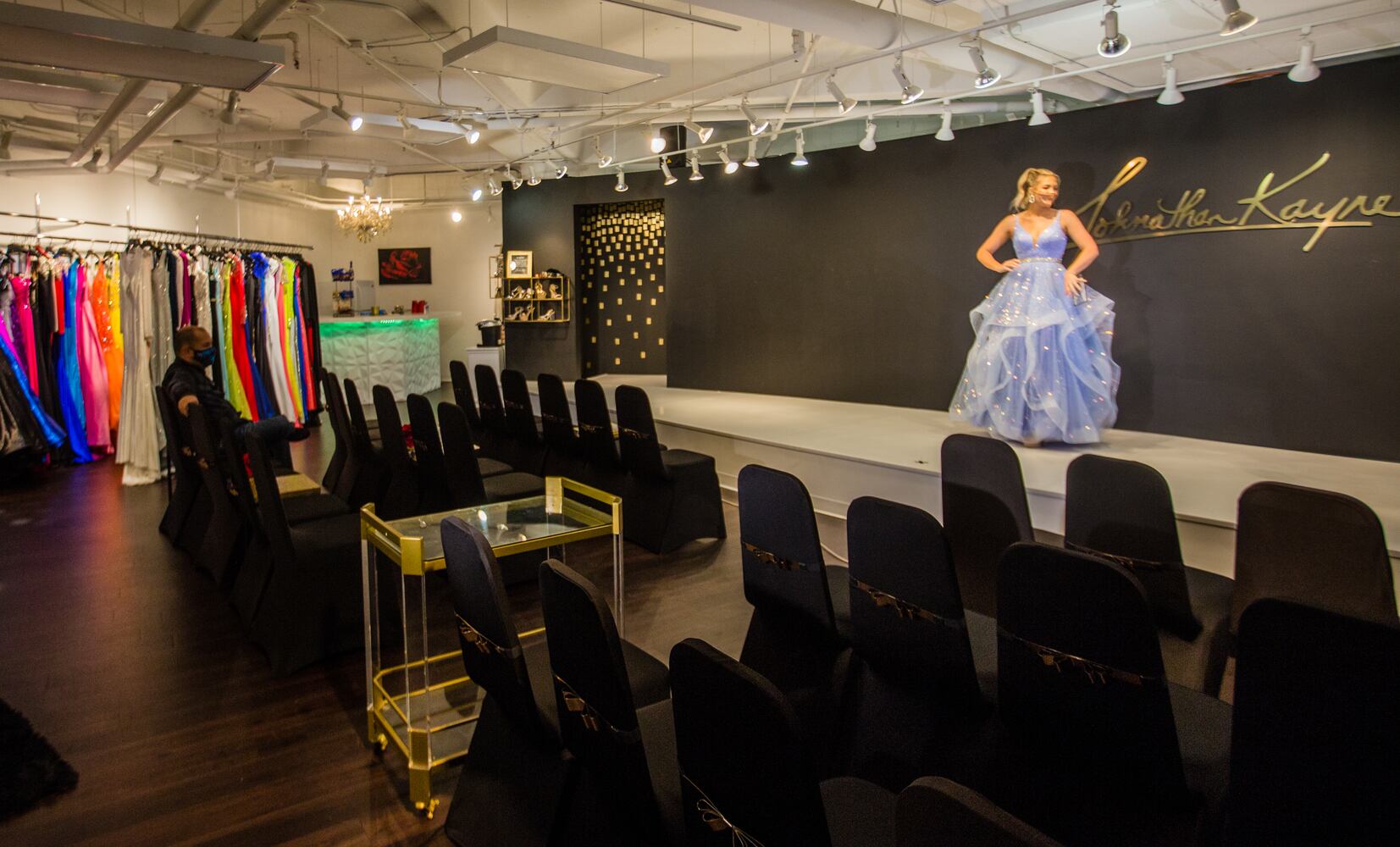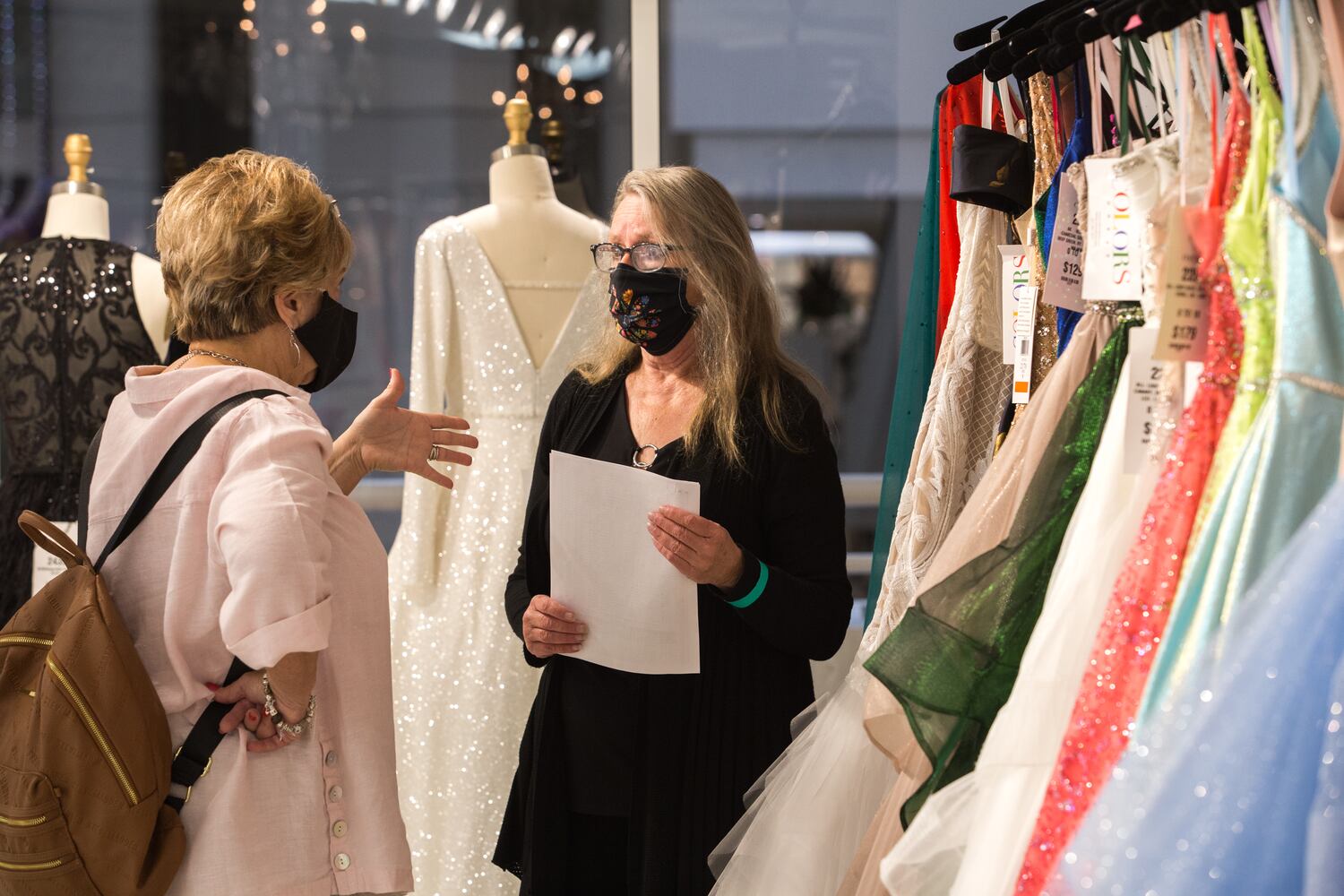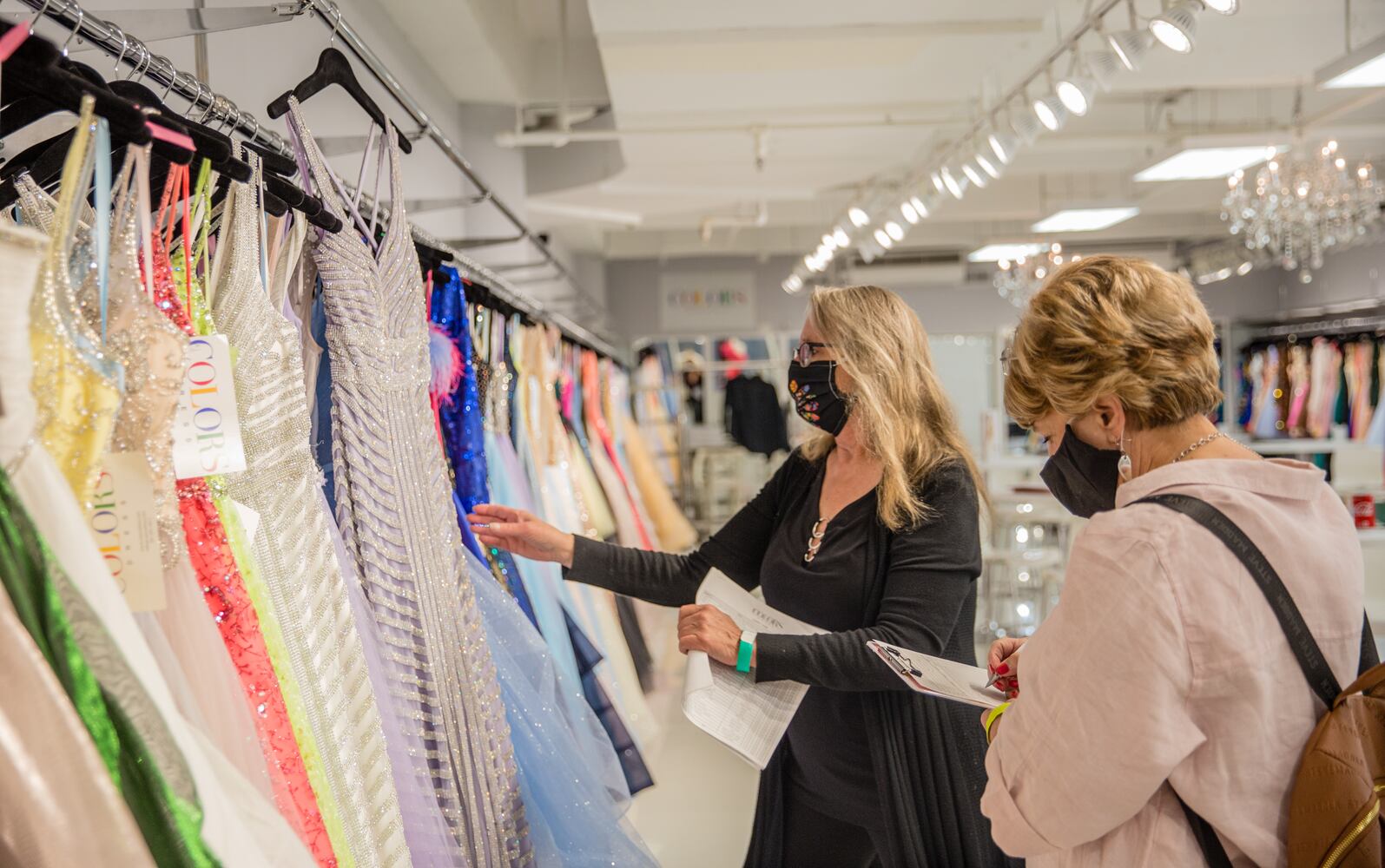Prom shop owners from around the nation traditionally converge in downtown Atlanta this time of year to guess what teens will want to wear next spring and order new dresses.
But for the few in the battered industry brave enough to make a pilgrimage this week to the World of Prom trade show — billed as the biggest of its kind in the U.S. — there was a very different kind of guesswork at play.
Will the rite of adolescence be obliterated again by coronavirus concerns?
Some came to AmericasMart with one underlying goal for their buying decisions: Stall as long as possible.
“It’s a period of total uncertainty,” said Joy Salyards, who owns Reflections Prom & Pageant in Harrisonburg, Va.
Many teens don’t even know whether they will be in school classrooms in coming weeks. How can Salyards guess what the state of angst will be among government leaders and parents more than six months from now? “We don’t know what governors are going to do and what states are going to do tomorrow.”
The pandemic has created planning havoc for entrepreneurs in lots of industries. In the business of bright prom dresses with sequins and beads, though, lead times are longer than most.
In typical years, prom trade show attendees said, there are long waits to catch elevators. Lots of designers put on multiple runway shows each day, with every seat taken. Free booze and food, parties and DJs are expected.
This week, many permanent shops looked empty and temporary exhibitors were completely absent as rules about social distancing and mask-wearing were posted prominently. Few sellers bothered with runway shows.
Teens and their parents usually start buying prom clothes in late January and through the spring. Store owners suspect students are likely to make dress decisions later than normal — if at all. And many of their options likely involve sorting through what never moved off store racks last prom season.
This past spring, most shop owners never hit their stride before school systems canceled proms, along with graduation ceremonies and other events. Shops have been stuck with mountains of unsold dresses, debt to designers and little appetite to buy more.
In typical years, Salyards puts in hundreds of thousands of dollars worth of orders with designers who fly in to sell their wares at the prom show. This time she committed to less than $10,000 in dresses, most for pageants that are still being held. She isn’t even considering buying homecoming dresses.
Lani Williams’ shop, Joani’s Fashions in Shelby Township, Mich., is profitable most years. Not this one. She still has 99% of her inventory left over from last prom season and lingering debt. “It’s scary,” she said.
Williams shopped at the trade show, but didn’t place any orders. She hopes to stall until Thanksgiving or maybe even Christmas, when she might have a better read on what’s ahead.
“If I miss out on the next season, I don’t see myself staying afloat,” she said.
Atlanta is one of the country’s biggest hosts for conventions and trade shows. AmericasMart covers about seven million square feet, spreading over three buildings and multiple floors. It attracts buyers and sellers from around the nation and, sometimes, the world, and claims to have the largest collection of wholesale home, gift, area rug and apparel.
Virtually every major trade show and convention in the metro area has been postponed or canceled since mid-March. Part of the largely unused Georgia World Congress Center was converted for space to count absentee ballots and, twice, for overflow hospital beds during the pandemic.
AmericasMart held a small trade show in June, followed this week by the prom show and a simultaneous apparel show that normally attract 11,500 attendees and exhibitors and their staff. This year, it said, it expected only 4,500.
But those at the show — which ended Friday — said they saw far smaller numbers on the three floors set aside for prom and bridal dresses.
Daniel Adrian, who rents space in the center for his Philadelphia-based Clarisse dress business, said normally he relies on a staff of 40. This year it was just him and his future sister-in-law at the show.
David Knapp, who does accounting for his wife’s Best Bride, Prom & Tux shop in Asheville, N.C., won’t place dress orders until next month, when he hopes to hear news about how the latest phase of vaccine trials is progressing. Still, he said he’d be happy if next year’s sales reach even 75% of normal levels.
Denise Knapp is more hopeful. Like others in the industry, she is hoping many parents will organize small, informal prom gatherings, such as photo-op sessions in families’ backyards.
Johnathan Kayne, a Nashville-based dress designer who gained notoriety on the TV show Project Runway, said he’s encouraging others in the industry to push such alternatives, maybe through the social media hashtag #SaveProm.
For some teens, the dress and the look is more important than the school-sanctioned dance.
“All the attention is on them for one night, and that doesn’t always happen,” said Kayne. It’s their first time wearing a gown and “for people to see them in a different way.”
AmericasMart faces an even-bigger trade show test starting Thursday. That’s when the center holds its annual Atlanta Market, a six-day gift, decor and lifestyle show that normally attracts 60,000 to 80,000 people. A spokeswoman said less than half the normal crowd is expected, but projections are still being tweaked.
Another trade show in September at AmericasMart is expected to focus on bridal goods. Some owners of prom dress shops said bride and mother-of-the-bride dresses are the one part of their business that’s growing. Weddings are still being planned, even if they are small backyard affairs, they said.
In the meantime, the pandemic has clarified basic priorities. Said Salyards, the Harrisonburg shop owner, “Here are my goals: To stay alive and to stay in business.”
About the Author
Keep Reading
The Latest
Featured
